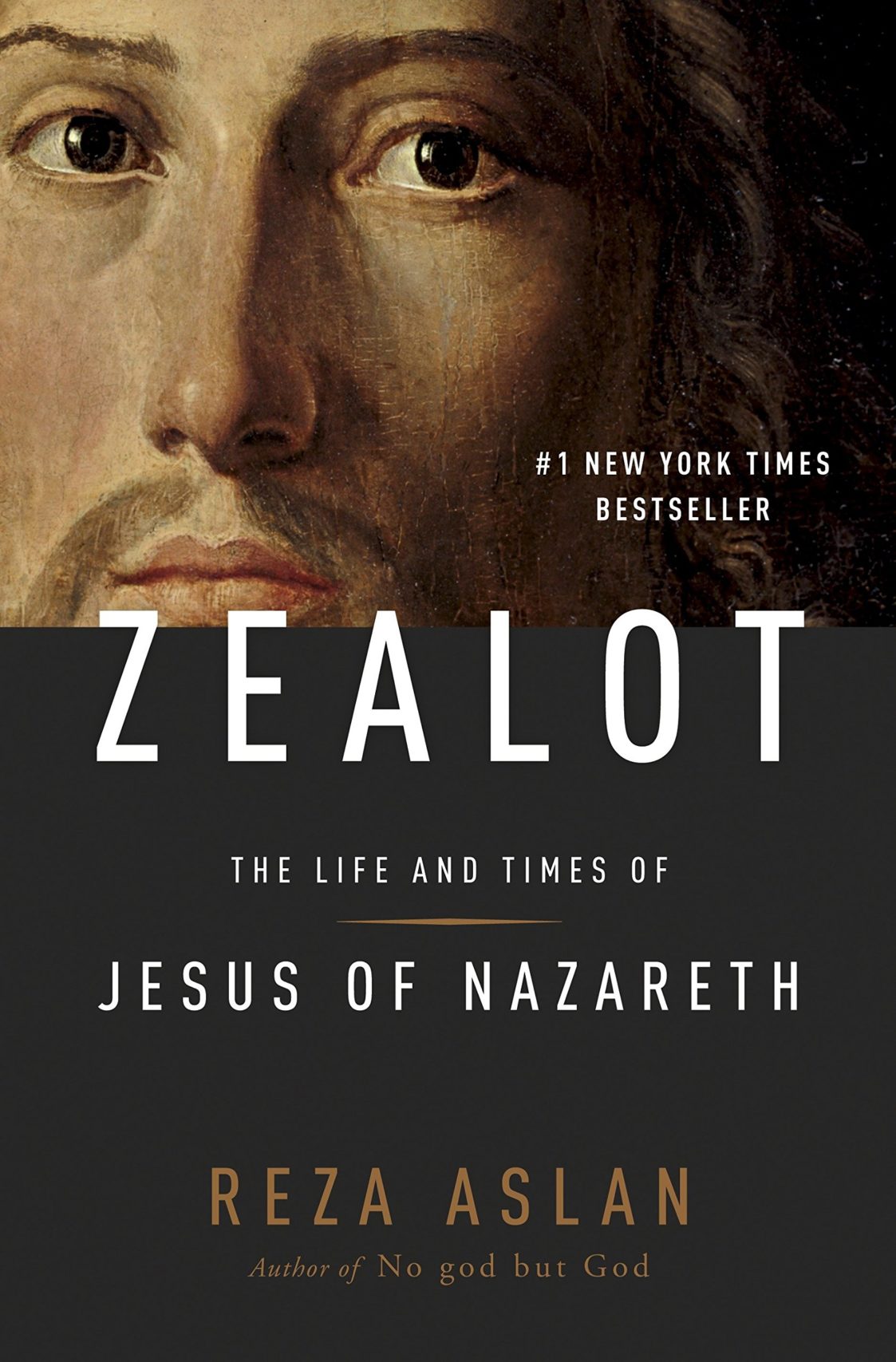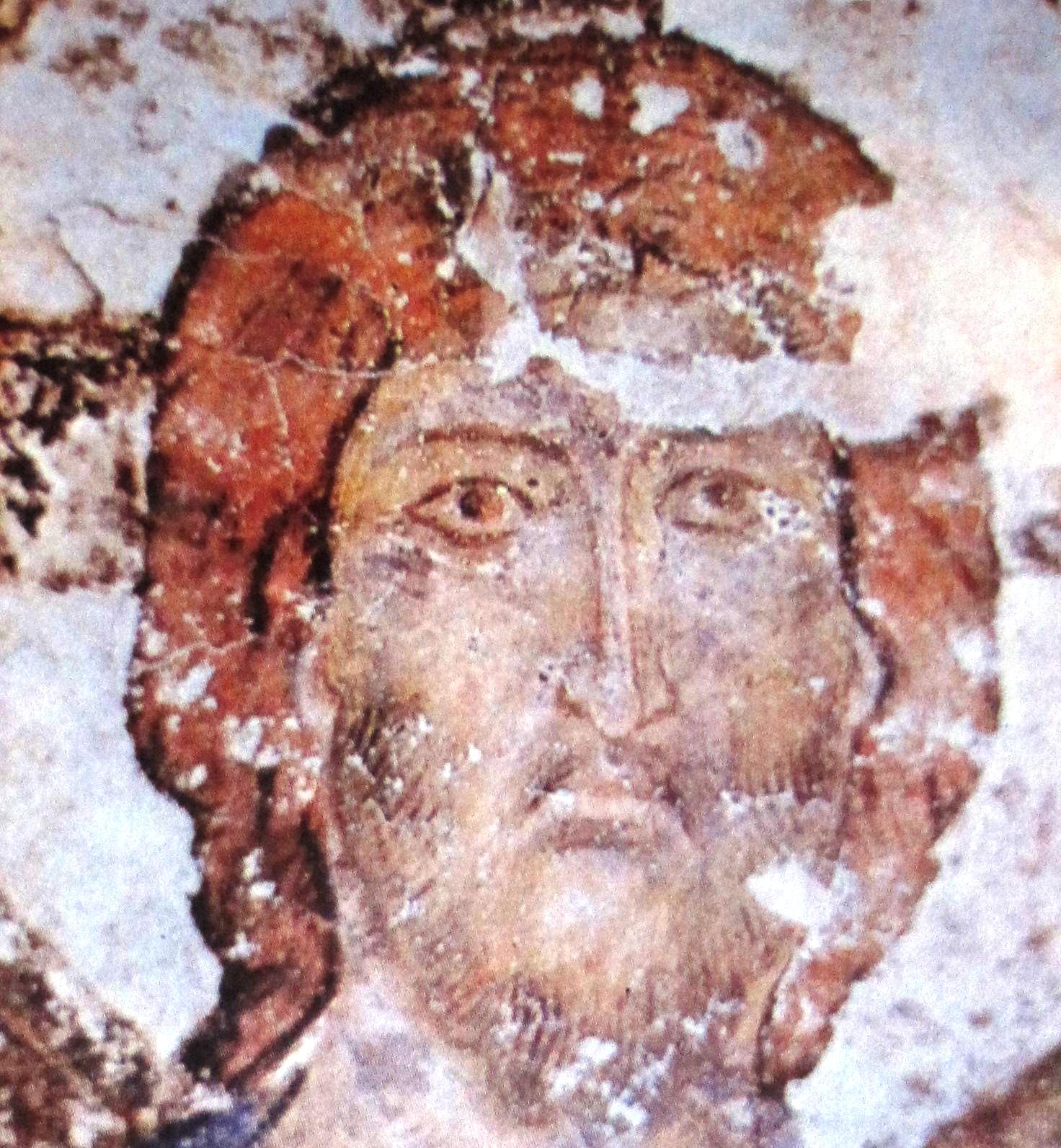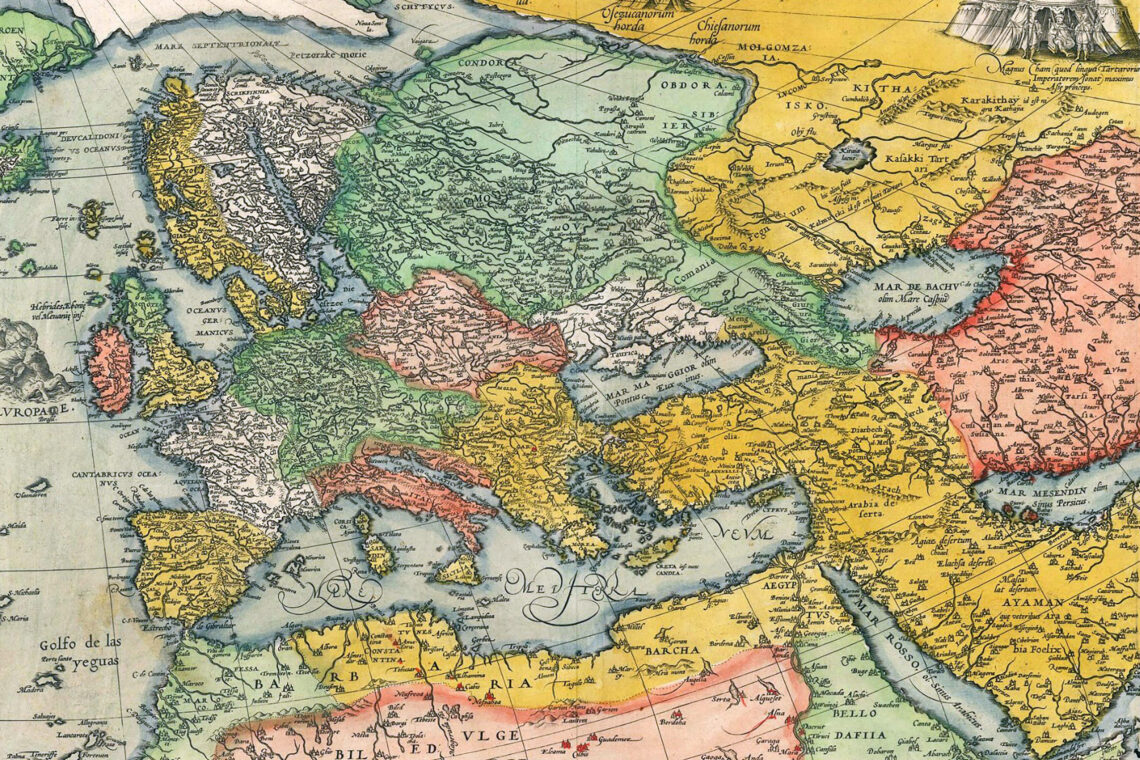The image of Jesus that emerges, somewhat hazily, from Reza Aslan’s new book, Zealot, reminded me of an annotated headshot of Osama bin Laden that appeared in the December 2001 issue of Harper’s magazine. Despite the horrors he unleashed on September 11, 2001, the “American Lucifer” appears more benevolent and soulful than threatening, with black eyes that are “playful, even feminine, set deep under a delicately arched brow.” As we scroll down the page, the portrait begins to look and sound eerily familiar. “The face,” commented Bill Wasik, the analyst, “bears a striking similarity to our conceptions of Jesus.”

There is something deeply unsettling about the image of a zealous Jesus not because he may have been one in real life, but because the Galilean’s story has strong and unmistakable echoes in our own troubled times. We are now confronted by armies of God-defending believers, proudly sporting shaggy beards, defiantly brandishing swords, firing Kalashnikovs and stomping feverishly on pulpits to repel the very thing Jesus and his entourage condemned: the secular Greco-Roman pagan heritage.
Fired up by the teachings of John the Baptist, Jesus of Nazareth is determined to restore Judaism to its undiluted promise, even if that makes him persona non grata in the eyes of Temple priests and a traitor in Roman law. As is the case with jihadists, martyrdom for the sake of God is more life affirming to Jesus than an uneventful, quiet life in a Roman province. By birth and education, Jesus seems to have no meaningful prospects in life, let alone attaining fame or achieving immortality. Speaking neither Hebrew nor Greek, the tekton from Nazareth is ill equipped to make it in this world, and so he takes his chances on another.
It works. Paul, smitten by a vision he has on the way to Damascus, does everything in his power to separate Jesus from historical Judaism and turn him into a universal Christ, good for Jew and gentile alike. It matters not a thing if James, Jesus’ brother, is appalled by Paul’s blatant fabrications, because after the year 70 A.D., when the Jewish Temple in Jerusalem is burned to the ground and the Jews hunted down and persecuted for their stubborn attachment to their heritage, the only way to save Jesus and secure him a respectable place in the Roman pantheon is by recasting the Galilean bandit as a harmless lamb.
The messiah who prefers Jews to gentiles and believes in a jealous God who orders the slaughter of foreigners is now a neighbor-loving man without any aspirations whatsoever for worldly power. He has no desire to restore God’s kingdom on earth but to join it in the heavens. His diplomatic statement about Caesar and his coins no longer implies that Rome has no right to Jerusalem, God’s chosen land. The whole episode is explained away as a wise statement about the separation of powers—spiritual and temporal.
Slowly, “the Son of Man,” as Jesus enigmatically calls himself, becomes, in the hands of Greek-speaking, Romanized writers, the Son of God, with a complicated substance that would break up Christians—as the followers of Jesus were first called at Antioch—into fanatical clans. But these are the sordid details of Christian history. Jesus Christ having been cleansed of his Jewish origins and transplanted into a Roman setting was destined to live outside of history. He is, and isn’t, of this world.
One could understand why Aslan believes in the Jesus of history. The bandit-messiah from Nazareth who revolts against injustice, defends the poor, confronts imperialism and dies for his faith sounds like a hero who has very little in common with the Christ who is later invented by Paul and institutionalized by Romanized bishops and emperors. The leader who rebels against a Western hegemonic power is far more interesting than the peace-loving man who ends up being co-opted by Rome’s secular and alien ways.
But why distinguish between the Jesus of history from the one of faith? Aren’t they, in the end, one and the same? Not only was Jesus’s story told after the fact, but both Jesuses share a common cause when it comes to Rome’s pagan Greek culture. Before Emperor Constantine had his Christian vision and established the Nicene Creed, the Greco-Roman world had been a place of religious and intellectual diversity, where many gods and ideas coexisted side by side. Neither the historical Jesus, nor the one created by Paul, liked that world. James and Paul may have disagreed on who the real Jesus was, but both men were monotheists who rejected the polytheistic ways of paganism.
In an ironic way, the death of historical Jesus (real or metaphorical) is what gave his anti-Hellenistic project life. The triumph of Romanized Christianity may have been a gross distortion of history (if there ever was one), but it dealt a mortal blow to the culture Jesus fought with his life. God’s kingdom was born in all its glory and a far more insidious terror was imposed on much of the world—until, some 1500 years later, Greek thought broke free from the dogmas of the Christian Church.
Just as the historical Jesus rejected the Hellenistic culture of his age, today’s jihadists are resisting American and Western influence for similar reasons. Lagging behind on every single measure of accomplishment, Arabs and Muslims are brandishing their monotheistic faith, concocted from Christian and Jewish traditions, to uphold the purity of their religion and restore a golden age they never had. Armed with petrodollars, they can afford such fantasies. But what would happen when the ground dries up and the desert stops yielding its riches? Extremism in the name of the Almighty will worsen and we may plunge, yet again, into another long dark age.
Religious zealotry, as pre-Christian Romans knew, is not a virtue. It is a delusion that undermines diversity, stifles thought, enshrines hypocrisy and threatens social peace. Monotheists of all stripes are against open societies. This is why many Muslims don’t like the West, especially the United States, designed by the founders to be a bit like Rome. People could believe in any deity they choose, but there is no supreme god who has chosen one people, land, or language over others.
Gods, prophets, and messiahs, even if they walked the earth, are all of our own making. Coming to terms with this indisputable fact will make all the difference in the turbulent decades to come.





Comments are moderated by the editor and may not appear on this discussion until they have been reviewed and deemed appropriate for posting. All information collected is handled in a manner consistent with our privacy policy.